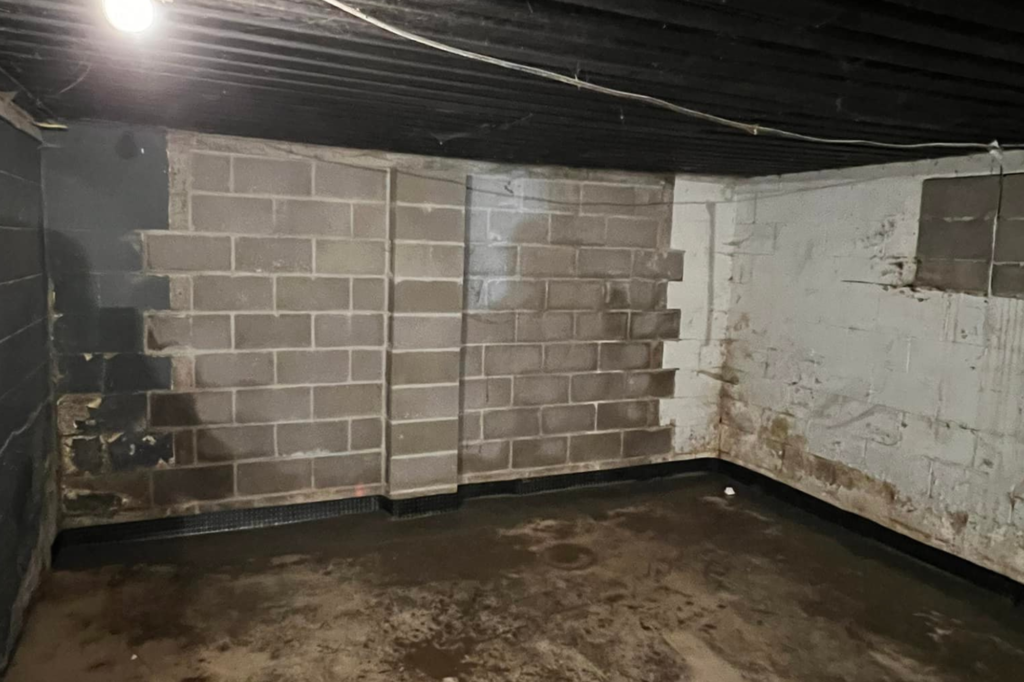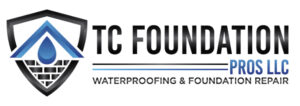A damp basement can seriously harm your home’s value by posing several challenges. It weakens the foundation, causing cracks and structural shifts that are expensive to fix. Mold and mildew thrive in the moisture, damaging interiors and creating health hazards that deter buyers. The presence of mold suggests neglect, impacting your home’s marketability. Basement waterproofing Pittsburgh experts can help address these issues, preventing moisture buildup and safeguarding your property. Damp conditions also reduce insulation efficiency, leading to higher energy costs. During an inspection, signs of moisture set off alarms, lowering buyer confidence and possibly affecting negotiations. Understanding these issues and management strategies can help in preserving your property’s worth and appeal.
Key Takeaways
- A damp basement weakens structural integrity, leading to costly repairs and reduced home value.
- Moisture fosters mold growth, creating health risks and deterring potential buyers.
- Dampness signals neglect and underlying issues, lowering perceived property worth.
- High humidity impacts energy efficiency, increasing costs and decreasing appeal.
- Moisture problems can negatively affect home inspection outcomes and buyer negotiations.
Structural Damage Risks
When a basement is damp, the structural integrity of your home is at significant risk. Moisture can seep into the foundation, leading to weakening over time. This deterioration can manifest as cracks and shifts, jeopardizing the stability of the entire structure. Such issues often require costly repairs, which inevitably affect your damp basement home value.
Prospective buyers are keenly aware of these risks, and the impact of a damp basement on property value can be substantial. They might be deterred by the potential for expensive foundation repairs, viewing your home as a financial liability rather than an asset.
Moreover, a damp basement can accelerate wood rot in structural components such as beams and joists. This decay compromises the building’s core strength, further diminishing the home’s value.
Buyers might perceive these structural vulnerabilities as warning signs of future expenses, prompting lower offers or deterring them from purchasing altogether. Addressing these issues proactively by implementing effective waterproofing and drainage solutions is essential.
Not only does this preserve your home’s structural integrity, but it also guarantees that your property remains attractive in the real estate market, safeguarding its value against moisture-related depreciation.
Mold and Mildew Issues
Although often overlooked, mold and mildew in a damp basement can severely impact both your home’s livability and its market value. These fungi thrive in moist environments, and a wet basement provides the perfect breeding ground.
Mold and mildew can quickly spread beyond the basement, affecting walls, floors, and ceilings throughout your home. This not only compromises the structural integrity of building materials like wood and drywall but also results in unattractive stains and damage that potential buyers will notice.
A damp basement lowers home value by creating an impression of neglect and future expense. When prospective buyers see mold, they anticipate costly remediation efforts and potential structural repairs.
Mold and mildew issues are often seen as red flags, indicating underlying moisture problems that could escalate, leading to reduced offers or even complete buyer disinterest.
Moreover, the presence of mold and mildew can necessitate frequent and expensive maintenance. Homeowners must invest in proper drainage, waterproofing, and possibly mold remediation to restore the basement to a condition that won’t deter buyers.
Ultimately, addressing these issues proactively is vital to maintaining and potentially enhancing your home’s market value.
Health Concerns for Occupants
Exposure to a damp basement isn’t just a structural concern; it’s a significant health risk for occupants. When moisture infiltrates your basement, it creates an environment conducive to mold and mildew growth. These fungi release spores into the air, which you and your family can inhale unknowingly. Breathing in mold spores can cause a variety of health issues, particularly if someone in your home suffers from allergies or asthma. Symptoms can range from mild irritation, such as sneezing and coughing, to more severe reactions like respiratory infections.
Moreover, damp basements can lead to poor indoor air quality. High humidity levels can increase the concentration of dust mites and other allergens, exacerbating respiratory problems. Odors from the dampness itself can also contribute to headaches and nausea. If left unaddressed, these conditions can severely affect your quality of life.
Adverse health effects aren’t just limited to physical symptoms. Constant exposure to a musty and damp environment can also affect mental well-being, leading to stress or anxiety.
Addressing a damp basement is essential not only for maintaining your home’s structural integrity but also for safeguarding the health of all its occupants.

Decreased Energy Efficiency
A damp basement can greatly reduce your home’s energy efficiency, becoming a hidden drain on your utility bills. When moisture infiltrates your basement, it affects the insulation properties of your home. Wet insulation loses its effectiveness, allowing heat to escape during colder months and infiltrate during warmer ones. This forces your heating and cooling systems to work overtime, consuming more energy and increasing costs.
Moreover, high humidity levels in your basement can lead to condensation forming on walls and pipes. This moisture encourages the growth of mold and mildew, which can obstruct ventilation systems and further impede airflow. As a result, your HVAC system must work harder to maintain comfortable temperatures, further increasing energy consumption.
Additionally, damp basements can cause your dehumidifier to run more frequently to combat excess moisture, adding another layer to your energy expenses. The increased operation of these systems not only raises your utility bills but also shortens the lifespan of your appliances due to overuse.
Addressing basement dampness is essential for maintaining energy efficiency. Ensuring proper insulation, sealing leaks, and utilizing effective ventilation can prevent these issues and keep your energy costs in check.
Impact on Home Inspections
Maintaining energy efficiency is important, but ensuring your home passes inspection is equally essential, especially when dealing with a damp basement.
During a home inspection, a professional will thoroughly assess your house, paying close attention to the basement. Any signs of moisture can raise red flags, indicating potential structural issues or health hazards. Inspectors will look for water stains, mold growth, and musty odors, all of which suggest excessive moisture.
These findings greatly impact the inspection report, possibly deterring potential buyers or lowering your home’s appraised value.
You should understand that a damp basement could lead to further scrutiny of the property. Inspectors might recommend additional checks, such as a structural engineer’s evaluation, increasing your costs and delaying the sale process.
Furthermore, moisture problems often necessitate disclosure to potential buyers, affecting negotiations. Buyers are likely to request repairs or a price reduction based on the inspection results.
Addressing basement moisture before listing your home can mitigate these issues. Investing in waterproofing or drainage solutions not only enhances inspection outcomes but also reassures buyers, maintaining your home’s market value and expediting the selling process.
Lower Buyer Interest
When buyers encounter a home with a damp basement, their interest often dwindles, greatly affecting your property’s marketability. Buyers generally perceive a damp basement as a warning sign of underlying issues. They’re likely to associate it with costly repairs or potential health hazards, such as mold. This perception alone can be enough to deter them from proceeding with a purchase, reducing the pool of interested buyers considerably.
Moreover, a damp basement impacts the overall impression of your home. Buyers tend to form opinions quickly, and a musty odor or visible water damage can be lasting. These negative impressions are hard to reverse, making it challenging to convince buyers of the home’s other merits. Additionally, they may question the overall maintenance of the property, fearing undisclosed problems.
The financial implications also play a vital role in lowering buyer interest. Prospective buyers might anticipate needing to invest in waterproofing or foundation repairs, leading them to calculate these potential expenses into their offers. Consequently, they may present lower bids or choose to walk away altogether, preferring a property with fewer foreseeable issues.
Addressing basement moisture proactively can help maintain interest and preserve your home’s value.
In Summary
Addressing a damp basement with basement waterproofing is essential to safeguard your home’s value and attract buyers. TC Foundation Pros LLC specializes in resolving moisture issues that could lead to structural damage, mold growth, and health risks for occupants — all of which can deter potential buyers. These problems might also impact the results of home inspections, leading to decreased buyer interest and possible price reductions. By proactively waterproofing your basement, you enhance your home’s livability, energy efficiency, and overall market appeal, ensuring a successful sale.
